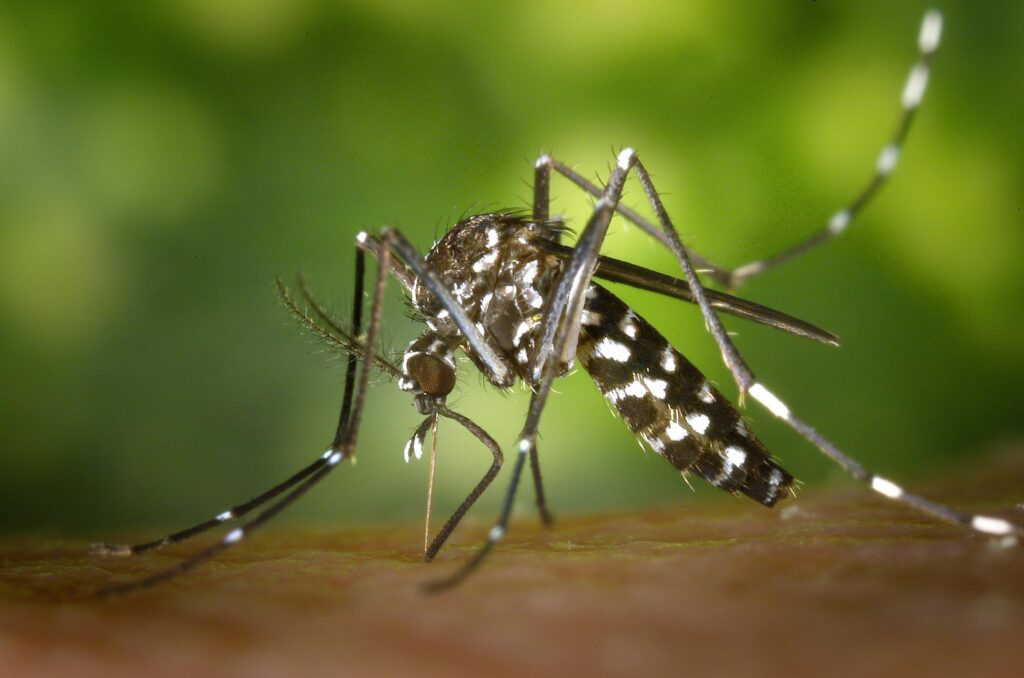When we think of dangerous animals, our minds often jump to creatures like lions, sharks, or venomous snakes. However, the title of the most dangerous animal in the world goes to an unexpected contender: the mosquito. Despite its tiny size, this insect is responsible for more human deaths each year than any other animal on the planet.
The Real Danger: Disease Transmission
Mosquitoes themselves aren’t deadly because of their bite. The real danger comes from the diseases they transmit. Mosquitoes are vectors for many of the world’s most deadly illnesses, infecting millions of people annually. Here are the primary diseases that make mosquitoes so dangerous:
Malaria:
Malaria is transmitted by the Anopheles mosquito and kills over 600,000 people each year, with the majority of victims being children in sub-Saharan Africa. The parasite that causes malaria attacks red blood cells, leading to fever, chills, and in severe cases, death.

Dengue Fever:
The Aedes mosquito spreads this virus, which causes intense pain, high fever, and sometimes fatal complications. Dengue affects millions of people, primarily in tropical and subtropical regions.

Zika Virus:
Zika gained widespread attention in recent years due to its link with severe birth defects, including microcephaly, a condition where babies are born with abnormally small heads and underdeveloped brains.

Yellow Fever:
Another disease spread by mosquitoes, yellow fever causes flu-like symptoms, and in severe cases, it leads to liver failure, jaundice, and death.

West Nile Virus:
Though not as deadly as malaria or dengue, West Nile can cause severe neurological symptoms and long-term health effects in some people.

Global Impact of Mosquito-Borne Diseases
Mosquito-borne diseases pose a significant global health threat, particularly in tropical and subtropical regions where mosquito populations thrive. According to the World Health Organization, malaria alone infects more than 200 million people annually. In addition, dengue fever has seen a surge in cases due to urbanization and climate change, which increase mosquito habitats. Together, these diseases put immense pressure on healthcare systems and cause suffering for millions.
Why Are Mosquitoes So Efficient?
There are several reasons why mosquitoes are such effective carriers of disease:
- Widespread Habitat: Mosquitoes are found on every continent except Antarctica, with over 3,000 species in existence. This wide geographic range makes it difficult to control their populations.
- Rapid Reproduction: Mosquitoes reproduce quickly, laying hundreds of eggs in small bodies of stagnant water. This allows their numbers to increase rapidly, especially in areas with poor sanitation or standing water.
- Adaptability: Many mosquito species have adapted to urban environments, where they breed in man-made containers, drainage systems, and even household plants.
- Resistance to Control Measures: Over time, mosquitoes have developed resistance to many insecticides used to control their populations, making it harder to reduce their numbers.
Preventing Mosquito Bites and Reducing Risk
Given the danger mosquitoes pose, it’s crucial to take measures to protect yourself and reduce mosquito populations. Some key strategies include:
Use Insect Repellent: Apply repellent containing DEET or picaridin to exposed skin to keep mosquitoes away.
Eliminate Standing Water: Mosquitoes breed in stagnant water, so make sure to empty containers, clean gutters, and fix any drainage issues around your home.
Use Mosquito Nets: Sleeping under mosquito nets, especially in malaria-prone areas, can drastically reduce the risk of being bitten.
Wear Protective Clothing: In areas with a high mosquito population, wearing long sleeves and pants can help reduce exposure.
Support Vector Control Programs: Many governments and international organizations run mosquito control programs that involve insecticide spraying, releasing sterile mosquitoes, and public health education campaigns.
Conclusion
Despite their small size, mosquitoes are the deadliest creatures on Earth. The diseases they spread, such as malaria, dengue fever, and Zika virus, continue to threaten millions of lives, particularly in the developing world. While controlling mosquito populations is an ongoing challenge, personal protective measures and public health efforts are critical in reducing the risk they pose. In the end, the tiny mosquito proves that size is no measure of danger.



